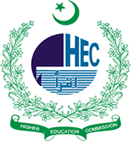Effect of Playing Venue on Hormonal Responses and Psychological State of Inter-University Volleyball Players
DOI:
https://doi.org/10.51846/the-sky.v5i1.998Keywords:
Key Words: Anxiety, Cortisol, Playing Venue, Testosterone, Volleyball players.Abstract
The home advantage is a powerful wonder that happens in the realm of amateur and professional games where most teams win more than 50% of matches. The present study compared the effects of playing venue on hormonal responses and psychological state of inter-university volleyball players at home and away ground. A total of 96 male players age, 18 to 24 years from eight different public and private universities were selected as the subject in this study. Matches were scheduled in such a manner so that each team would play one match on home ground and one on away ground. The results of this study showed that a 13% reduction in the testosterone level of players was seen on the opponent’s home ground before playing the match, whereas, 18% elevation in cortisol level of players was recorded on the opponent’s home ground before-match. Psychological measures indicated that players’ cognitive and somatic anxiety levels were increased on away ground (10% and 13%, respectively) whereas, their self-confidence level declined by 17% on an opponent’s home ground before the commencement of the match. The present study supports the notion that there are differences in pre-competition hormonal and psychological states that may play a key role in ‘the home advantage’ which could affect players’ behavior and match outcomes.
Downloads
Published
How to Cite
Issue
Section
License
Copyright (c) 2021 Yasmeen Tabassum, Muhammad Zafar Iqbal Butt, Nabila Roohi

This work is licensed under a Creative Commons Attribution-ShareAlike 4.0 International License.
Authors retain copyright of their work and grant THE SKY-International Journal of Physical Education and Sports Sciences the right to publish it under a Creative Commons Attribution-ShareAlike 4.0 International License (CC BY-SA 4.0). This license permits sharing, adaptation, and redistribution of the work, provided proper attribution is given to the authors.
Authors may distribute the journal’s published version (e.g., in repositories, books, or other platforms) non-exclusively, with acknowledgment of its original publication here.
Authors are encouraged to share their work publicly (e.g., on personal websites or institutional repositories) to foster scholarly exchange.








